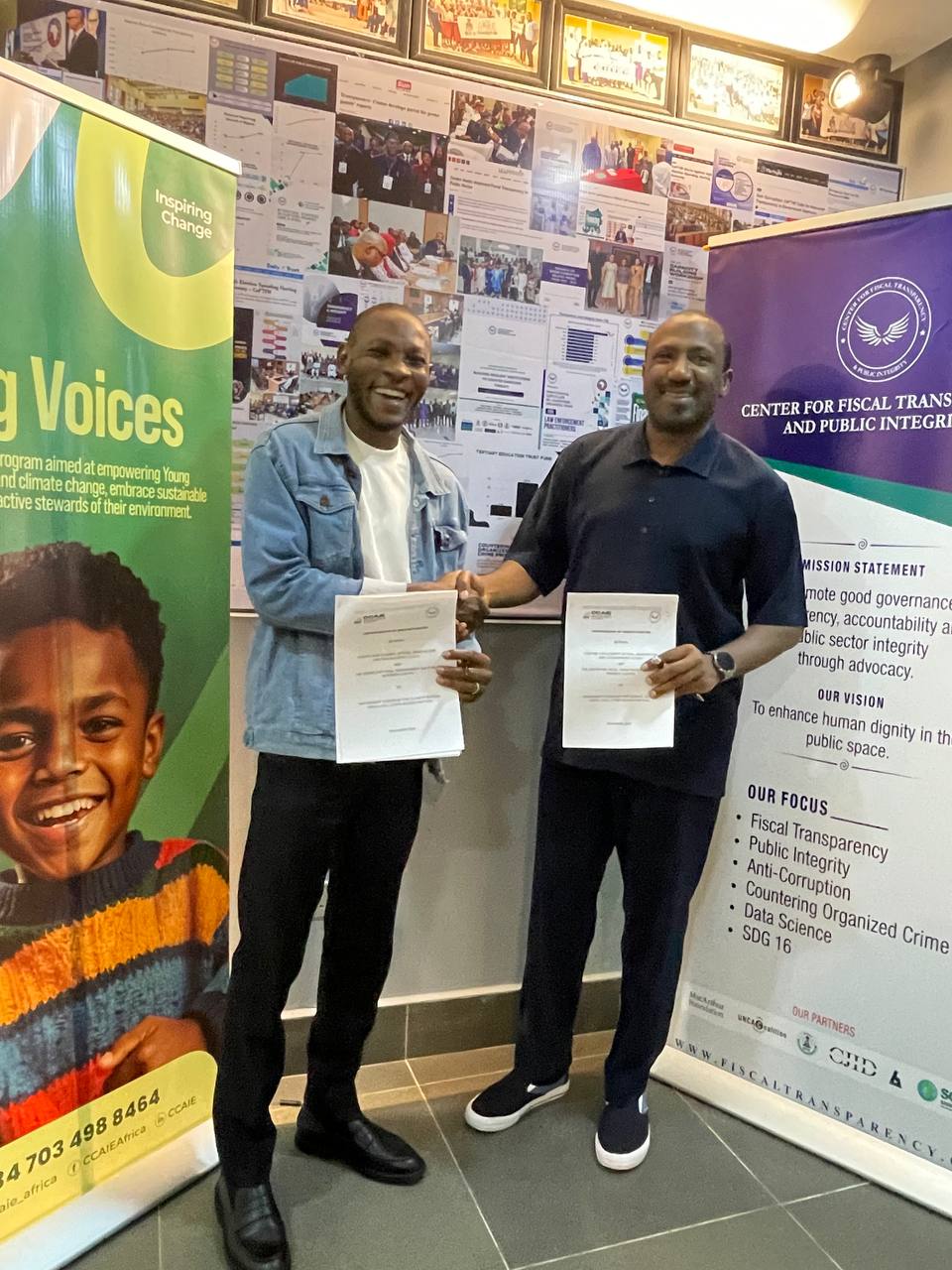The conclusion of COP29 in Baku, Azerbaijan brought fresh commitments from global leaders to intensify climate action, including leaders committing to triple finance to developing countries, protect lives and livelihoods. With cities and local authorities reportedly contributing approximately 75% of global greenhouse gas emissions, the need for a structured, localized approach has never been more urgent.
Against this backdrop, the Centre for Climate Action, Innovation, and Engagement (CCAIE) and the Center for Fiscal Transparency and Public Integrity (CeFTPI) have launched a strategic partnership to address climate challenges in Nigeria through the development of the Climate Action Index (CAI) for subnationals.
As a signatory to the Paris Agreement and with the adoption of the Climate Change Act of 2021, Nigeria has made bold commitments to achieve a 45% emissions reduction by 2030 and net-zero emissions by 2060. However, translating these national targets into actionable results at the subnational level has been a persistent challenge. The CAI offers a solution by providing a transparent and standardized framework to evaluate, rank, and support local governments in their climate efforts.
This partnership for the development of CAI will assess subnational governments on key areas, including transparency in climate financing, policy alignment, and the adoption of sustainable technologies. This aligns with Nigeria’s Nationally Determined Contributions (NDCs), and ensures grassroots participation and innovation.
Learning from COP29 Outcomes
At COP29, delegates emphasized the need for robust monitoring and accountability mechanisms to track climate actions. This is precisely where the CAI will fit and fills gaps. By creating evidence-based metrics and ranking indices, the CAI will empower Nigerian sub-nationals to measure progress, identify gaps, and adopt best practices.
The conference also highlighted the importance of localized climate resilience plans, particularly for vulnerable communities. The CAI will prioritize these communities, ensuring that resources and policies address specific challenges such as rising sea levels and erratic weather patterns.
The collaboration between CCAIE and CeFTPI is built on leveraging their respective strengths. CCAIE will bring its expertise in climate policy evaluation and the development of digital tools, while CeFTPI will ensure accountability through its experience in advocacy and governance. Together, both organizations will organize community sensitization programs, training workshops, and policy reviews, and create a comprehensive approach to climate governance.
Transforming Challenges into Opportunities
The benefits of the CAI extend beyond combating climate change. It will boost investor confidence by showcasing Nigeria’s commitment to transparent climate financing. Sub-national entities will receive recognition for their efforts, creating healthy competition and encouraging innovation.
As the world reflects on the outcomes of COP29, initiatives like the Climate Action Index underscore the importance of acting locally while thinking globally. The collaboration between CCAIE and CeFTPI represents a transformative opportunity for Nigeria to bridge the gap between policy and implementation.
Stakeholders, including governments, civil society, and the private sector are encouraged to support this initiative, ensuring its success and contributing to Nigeria’s sustainable future. With the CAI, Nigeria is not just responding to climate challenges but also leading the way in innovative, accountable climate action.

